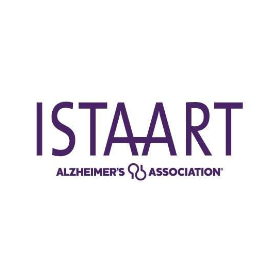All the events here are relevant to people working in dementia research. If you would like to add your own you can submit an event

- This event has passed.
Toward Health Equity in Brain Aging: Nontraditional Data Sources and Innovative Tools
27/09/2022 @ 6:00 pm - 7:15 pm

The US is becoming more racially and ethnically diverse, as minority populations (e.g., African Americans, Asian, Hispanics or Latino, etc.) are expected to outpace the growth of the non-Hispanic white population over the next few decades. Minority populations aged 65 years and older will represent approximately 45% of the US population by 2060. Observational studies of Aging and Alzheimer’s disease and related dementias (AD/ADRD) have documented significant health disparities by race and ethnicity, as well as other health disparate communities (e.g., Sexual and gender minorities, socioeconomically disadvantaged populations, underserved rural populations, etc.). These demographic shifts underscores the importance of addressing disparities within these communities. The Division of Neuroscience works to strengthen knowledge and understanding of aging and AD/ADRD in minority and health disparity populations, to achieve health equity.
The Division of Neuroscience will host a new webinar series, “Minority Health and Health Disparities Research in Neuroscience,“ to provide an opportunity for our grantees and other interested individuals to share research advances, lessons learned regarding cross-cutting challenges and opportunities in the field. Dr. Elizabeth Rose Mayeda will serve as the series’ inaugural speaker, presenting on methodological considerations for disparities research.
Dr Mayeda is an Associate Professor in the Department of Epidemiology at the UCLA Fielding School of Public Health. Her research focuses on identifying modifiable determinants of cognitive decline, dementia, and stroke in late life. Her research program has both applied and methodological themes. She focuses on describing and identifying mechanisms contributing to disparities in late-life cognitive and brain health and also leads work addressing methodological challenges in longitudinal studies of stroke, cognitive aging, and dementia risk. Her long-term research goals are to: (1) identify effective population-level strategies to prevent dementia and eliminate disparities in dementia and (2) develop research tools to strengthen causal inference in dementia research and lifecourse epidemiology.
Registration
Contact Information
Please contact Damali Martin for questions about the webinar.
Workshop Committee Members
Dallas Anderson, Division of Neuroscience
Damali Martin, Division of Neuroscience
Camille Pottinger, Division of Neuroscience
Reasonable Accommodation: If you need reasonable accommodation to participate in this event, please contact the meeting organizer listed under Contact Information. Please make your request no later than 1 week before the event.




